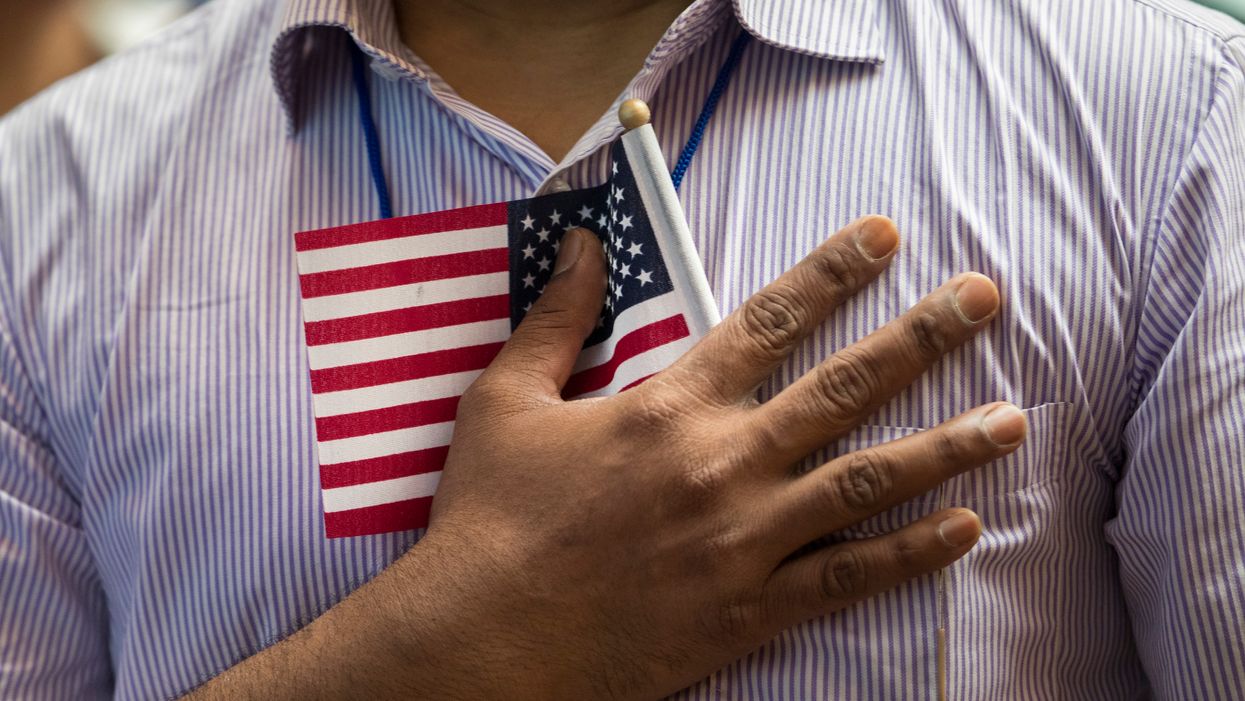
Drew Angerer/Getty Images

'I also object to the phrase 'one nation under God'
The board of trustees president for a California community college ended the recitation of the Pledge of Allegiance at meetings, claiming the ritual was "steeped in expressions of nativism and white nationalism."
Santa Barbara City College Board of Trustees president Robert Miller explained his decision in an email to Celeste Barber, a former adjunct instructor. The emails were obtained by Campus Reform.
"I assume full responsibility for the decision not to recite the Pledge of Allegiance," Miller wrote. "I agree with you that the Pledge is an example of good writing. It well demonstrates the principle that fewer, well-chosen words are often the most effective. I also applaud and honor the patriotism that motivates your request and share your reverence for the U.S. Constitution and Bill of Rights.
"I decided to discontinue use of the Pledge of Allegiance for reasons related to its history and symbolism."
Miller claimed in his email to Barber that the pledge carried with it some negative connotations that he wanted the school to get away from.
"Moreover, I have discovered that the Pledge of Allegiance has a history steeped in expressions of nativism and white nationalism. The Pledge of Allegiance was written in 1890 by Francis Bellamy, a former Baptist minister. ... In support of the Pledge, Mr. Bellamy expressed concern about the 'races which we cannot assimilate without a lowering of our racial standard.'"
"Expressions for support for the Pledge of Allegiance in 1890 sound eerily similar to the ugly racist, anti-immigrant expressions we hear today," Miller wrote.
Miller also disagreed with the use of the pledge on what he said were First Amendment grounds.
"I also object to the phrase 'one nation under God.' The First Amendment not only protects freedom of speech and religion, it also expressly prohibits laws that establish a religion. The U.S. Supreme Court has expressly extended those rights to those who express no belief in God. Thus, I disagree with the 1955 act of Congress to add this phrase to the Pledge of Allegiance."
Barber, who said her childhood neighborhood was full of WWII and Korean War veterans, was appalled at Miller's disregard for the Pledge.
"If my father's generation of young men were willing to stake their lives on this republic, how could I not recite one single sentence professing allegiance to our country?" Barber said to Campus Reform.